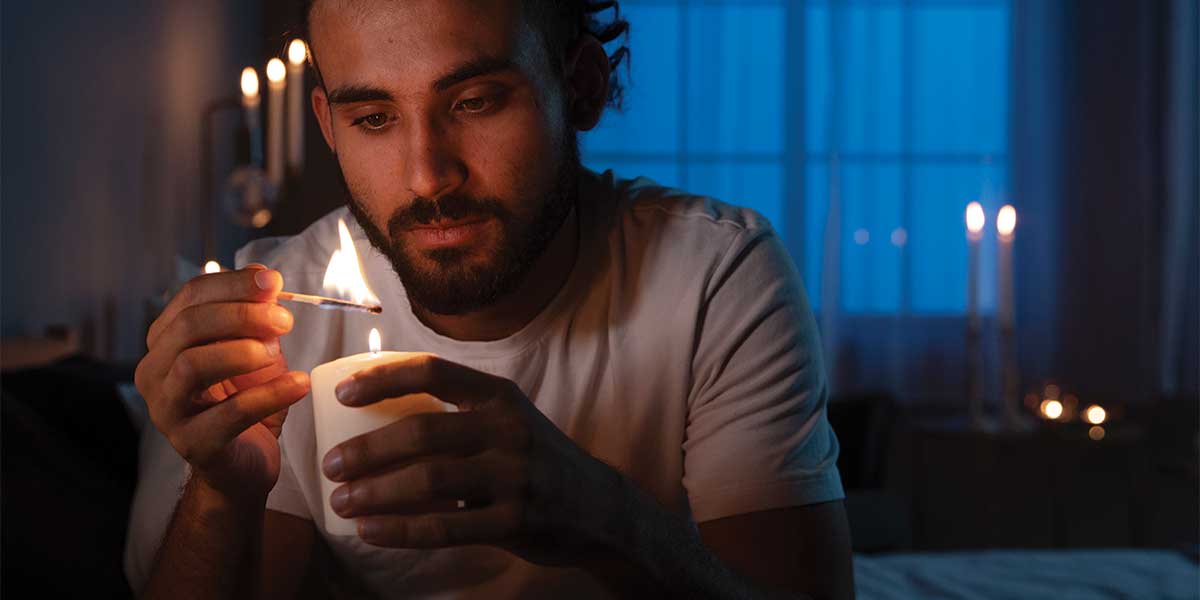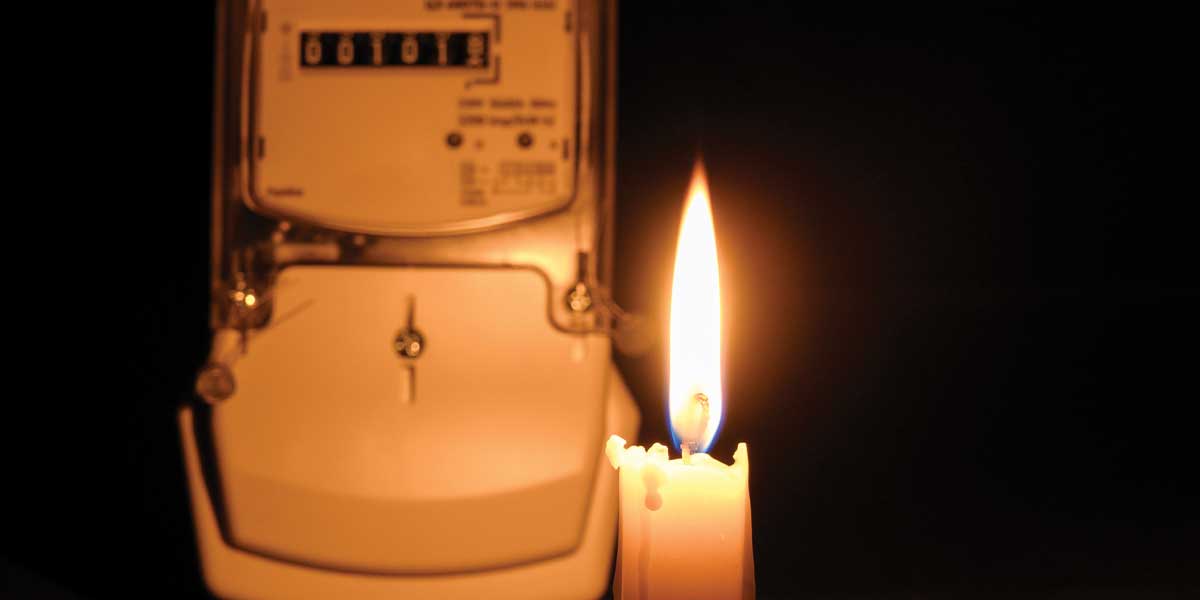Whether you live in a region with frequent weather-related blackouts or in a location where outages are rare, prepping in advance is vital. Preparing for a power outage isn’t just about gathering flashlights—it’s about creating a full Power Outage Preparation Guide so that when the lights go out, you and your loved ones stay safe, calm, and in control.
At Expert Electric, we understand how quickly a power outage can disrupt everyday life. Without warning, essential appliances, lights, heating or cooling systems, and communication tools go down. But with thoughtful preparation, what might have been a crisis can become merely a temporary inconvenience.
Build a Thoughtful Emergency Plan
Start with a well‑structured emergency plan—this is the real foundation of any power outage preparation guide. Gather your household and answer these types of questions:
- Where will you meet if your family gets separated?
- If the power goes out due to weather versus a transformer failure, how does your response differ?
- Do you live in a house or an apartment? How will mobility, young children, elderly relatives, or people requiring medical devices affect your actions?
- How will you communicate if cell service fails? (Consider walkie-talkies or a pre-arranged check‑in schedule.)
Putting this plan in writing—printing it and keeping copies in accessible places—is a simple change, but it pays off when stress is high and time is short. A formal plan also helps beyond your home—BC’s official emergency service encourages residents to have ready plans and neighbor networks.
Assemble a Comprehensive Emergency Kit
Your Preparing for a Power Outage plan must include a robust emergency kit. Based on guidance from BC Hydro, Ready.gov, and other trusted sources, your kit should include:
- Flashlights or LED lanterns (far safer than candles) plus extra batteries
- Bottled water—minimum one gallon per person per day for drinking and sanitation.
- Non‑perishable food to last at least 72 hours, possibly up to two weeks.
- A battery-operated or crank radio to stay informed if cell service or internet is down.
- First‑aid supplies, blankets, a corded phone (which may still work during an outage), backup phone charger/power bank.
- Important documents and cash, since electronic payments and ATMs may fail.
Check and rotate your kit once annually, and replace expired batteries or perishable items so the kit stays reliable.

Protect Your Electronics, Appliances, and Home
Sudden power restoration often brings dangerous surges. These can damage or destroy sensitive electronics such as TVs, routers, computers, home security systems, and even HVAC units.
To guard against this:
- Unplug or switch off all non-essential electronics when an outage begins.
- Consider a whole‑home surge protector, which offers better protection than individual power bars.
Also, for devices like refrigerators and freezers:
- Keep doors closed. A refrigerator keeps food cold for about four hours; a full freezer may last 24–48 hours.
- When safe, use coolers with ice to preserve perishables.
Stay Safe with Power Generators and Alternative Heat Sources
Generators can help power essentials like medical devices or refrigeration, but they come with serious health risks, especially carbon monoxide (CO) poisoning. Follow these rules:
- Only use generators outside, well away from windows, doors, or vents.
- Never use ovens, gas stoves, or charcoal grills indoors for heating; this increases the risk of CO poisoning and fire.
- Install and test battery‑powered CO detectors before using any combustion‑based generator.
- Always follow the manufacturer’s instructions and allow your generator to cool before refueling.
Communicate, Stay Connected, and Help Others
Communicating effectively during a blackout helps reduce stress and enhances safety:
- Sign up for outage notifications from BC Hydro via texts or online maps.
- Use a battery‑operated radio or crank radio to receive updates if electronic networks fail.
- Keep your phone battery in reserve by limiting use, or charge via car or solar power if possible.
- Check on vulnerable neighbors—elderly residents, people with medical conditions, or those with mobility issues may need help.

After Power Is Restored
Once the electricity returns, you’re not entirely in the clear—surges can still occur. Before plugging everything back in:
- Wait a short time and reconnect devices gradually.
- Ideally, let critical appliances be reconnected through surge protection or via a licensed electrician using a transfer switch (especially if you have a backup generator).
Summary Table: “Power Outage Preparation Guide” at a Glance
| Step | Action |
| 1 | Develop an emergency plan with family and neighbors |
| 2 | Build and regularly maintain an emergency kit |
| 3 | Unplug electronics, protect your fridge/freezer |
| 4 | Use generators safely (outdoors, CO precautions) |
| 5 | Stay connected to updates and check on vulnerable people |
| 6 | Reconnect devices carefully once power returns |
Frequently Asked Questions
How long will food stay safe in my refrigerator or freezer during an outage?
As long as you keep the fridge and freezer doors closed, refrigerated food will generally stay cold for about 4 hours. A full freezer can maintain its temperature for up to 48 hours, while a half-full one may last about 24 hours. To help preserve your food longer, avoid opening the doors unless absolutely necessary.
Can I use candles during a power outage?
While it might be tempting to use candles for light, they pose a serious fire risk, especially during a stressful situation like a blackout. It’s much safer to use LED flashlights or battery-powered lanterns. These options provide reliable lighting without increasing the chance of accidental fires.
Is it safe to use a generator indoors or in the garage?
No, using a generator inside your home, garage, or even in a covered porch is extremely dangerous. Generators release carbon monoxide, which is colorless, odorless, and potentially fatal. Always run generators outside, at least 20 feet away from doors and windows, and ensure your home has working carbon monoxide detectors installed.
Final Thought
In your Preparing for a Power Outage plan, aim to prepare ahead of time, not in panic. Assemble your kit, label circuits, secure surge protection, and educate everyone in your household. A thoughtful Power Outage Preparation Guide can reduce fear, prevent property damage, and ensure both safety and comfort when the lights go out. If in doubt or facing complex setup needs like whole‑home surge protection or safe generator connections, enlist a professional. Expert Electric is here to help.
Contact Details
Feeling unprepared or concerned about your home’s readiness? Contact **Expert Electric – your trusted Electrician in BC – for professional guidance, installations, and support.
- Phone: 604‑681‑8338
- Email: info@expertelectric.ca
Let us help you stay safe, smart, and ready—because being prepared makes all the difference.


